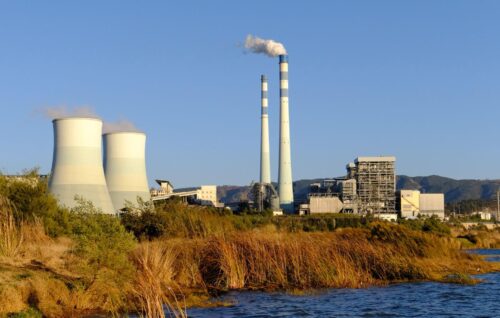The fascinating history and current state of Israel’s ties to China — Q&A with Carice Witte
A conversation with Carice Witte, who has been working at the heart of the complicated relationship between Israel and China for decades.

Carice Witte began studying Chinese in 1979 in Yale University’s famous East Studies program, and first began visiting China in the early 1980s. Today, she runs SIGNAL — the Sino-Israel Global Network & Academic Leadership — an Israel-based organization set up to “strengthen Israel’s position with China.”
We talked by video call last week about arms dealers, ports, academic exchanges, how Israeli citizens and government officials see China, the strange history of the two countries’ ties, and more.
This is an abridged, edited transcript of our conversation.
—Jeremy Goldkorn
Can you talk about the relationship between Israel and China, and how Israel’s ties to the U.S. affect it?
Israel was the first country in the Middle East to recognize the People’s Republic of China in January 1950. China wasn’t as quick to recognize Israel. And before Israel felt comfortable reaching out to China officially, it was looking for the okay from the U.S. because it was the U.S. and Europe that gave the push to create the state of Israel in 1948. By the time [Israel’s first prime minister] Ben-Gurion was able to get feedback from the Americans, China had already signed onto the Bandung Conference agreement and joined the boycott of Israel.
It was only in the ‘70s when Israel connected to China when Beijing was interested in arms, and the U.S. was interested in using Israel to help bring China out of the Soviet Union orbit. As long as that was the case, we were encouraged by the U.S. to be friendly with China under the table, through Shaul Eisenberg, who was an arms dealer among other things.
Later, we began official relations in 1992, and we were encouraged by the U.S. to continue the military and intelligence relationship, which was the only connection that the Chinese were interested in. Israel didn’t seem to have its own goals for what it wanted from China, but the revenues from defense sales and the potential for greater regional stability due to intelligence sharing were clear benefits.
But when the Falcon and Harpy deals took place, it was a huge crisis for all three countries in their relationship.These were early warning defense systems sold in the mid ‘90s to China with the okay by the Americans. After the fall of the Berlin wall, the U.S. there was no U.S.S.R. so it no longer wanted China to have access to such advanced technology in the military space and told Israel to cancel the deals. This created a huge fallout which actually reverberates until today.
So, when we’re talking now, what is the relationship? The U.S. is currently very concerned about dual-use technologies and technologies at the center of the tech war or rivalry between the U.S. and China.
Israel is a tech powerhouse. So, there is a constant concern, what might Israel be providing to China? Not in the military field, because Israel is absolutely more Catholic than the Pope when it comes to no military to China after the Falcon and Harpy affair. But there are a lot of dual-use technologies, AI, the chip situation, nanotechnology, supercomputers, algorithms, etc.
All of these things that Israel specializes in are things that China wants and that the U.S. does not want China to have. The U.S. is regularly talking to Israel about the subject. And honestly, the messaging is not getting across very clearly. The Americans are not so clear in what they want.
And the Israelis are not so clear in what they’re doing. So, there’s a lot of dissonance there.
What is the size of the business relationship? Do you have any numbers about how much trade there is and how much of that is technology?
The peak of Chinese investment in Israel was in 2018, a year after Prime Minister Netanyahu’s trip when they signed an innovation partnership. Investment began to flow in, mainly in the innovation and technology fields, which made up 10% or 15% of overall investment. [Rand Corporation estimates China invested $5.7 billion in Israel’s technology sector between 2011 and 2018.]
After 2018 some of Xí Jìnpíng’s 习近平 policies kicked in and it became very difficult to invest overseas. Over the last few years, there has been much less investment, partly, of course, because of COVID, but we do see very targeted investments continuing. So now while the numbers are quite low, they are really focused on these areas that are most important to China.
For example, about three years ago, Bright Food, the Chinese state-owned enterprise, won an Israeli government tender for a food tech incubator in northern Israel. Bright Food had reached out to an Israeli consortium to participate in their consortium, but when that deal did not work out, they went out and set up their own consortium and they ended up winning the tender. That’s a lot of effort and investment for one tender — but of course food security in China has become critical.
Of course, there’s been a lot of discussion about infrastructure in Israel, and China definitely had the lion’s share of infrastructure contracts up until about a year ago.
The most famous deal being for a port?
Haifa Port. Which is a management deal. Most of them are build and leave: the light rail, tunnels, and even Ashdod Port, they built it and left, and it’s now run by a European company.
But at Haifa, the long-term presence of China, is what irked the U.S. government, the Trump administration back in 2018. Haifa Port is sort of a poster child for concerns, but it was investigated over and over by different Israel security arms. And it is secure and it’s working fine. It has very advanced technology installed there, they are managing the port as a cargo port, and no security issues or questions have been raised at all in the last year and a half.
How about the general attitude in Israel among the political class, the military and defense establishment, and ordinary people to China? Aside from American pressure, what is the state of the sentiment?
I don’t think American pressure is the lead factor.
Each of those areas that you mentioned, they’re going to have a very different view and perspective.
So, the general population, we did a poll in 2017, and there was 85% to 95% pro-China attitude in 2017. By 2020, it had dropped to 66%, and now it’s 46%. The general population does not get really affected by U.S. views. This is very much about what China says and does globally and domestically. And although Israel doesn’t usually officially comment on or get involved in the Uyghur situation or Hong Kong or Taiwan, the people of Israel, a massively democratic country, are irked by all of the above. There also is disappointment by Israelis — like in most countries I think, and certainly many countries in the Middle East — about China actualizing on its promises. There was a great expectation there would be a lot of money invested or a lot of buying. You could sell to China, right? Xi Jinping talks to all of us about the 1.4 billion person market. But at the end of the day, access to that market is minuscule. And there are incredible numbers of roadblocks, and it’s very difficult for anyone to manage, much less countries of the Middle East who don’t really understand much about China. And there is a huge capacity gap in all areas of society here.
When we talk about the government, so the Israeli government, separate from the political echelons, but I would say both the government and the political echelons don’t know much about China, tend to avoid the subject because they don’t have a lot to gain by dealing with it.
Frankly, their priorities are elsewhere. In the government and in the political echelons, either we’re in the middle of an election or we are being attacked by our neighbors, or we have domestic terror, some incredibly unexpected mess like the judiciary override. So, nobody’s thinking about China except the defense sector. And when we talk about defense, it’s more the security echelons than the military.
But definitely both are more aware of China, I think, than any other sector of official Israel.
A few years ago, China and Iran agreed to establish a joint intelligence control room and collection center at the Port of Chabahar. The idea was that they were going to be able to cover the entire Persian Gulf and Arabian Sea within 5,000 kilometers of the Iranian coast. I’m sure that the Israeli intelligence community is following it and very aware of it and other things like that. At the same time, at that same port, the Chinese and the Russians were going to install electronic warfare systems for disrupting transmissions related to missiles and aircraft and even air defense systems. Of course, that’s something that Israel would be extremely tuned into.
As I understand it, there’s not a lot of material support from China for the Palestinians, but there’s been a lot of rhetorical support. You mentioned Bandung…how do Israelis look at that?
The Israeli people don’t pay attention at all. Most of them are not aware. China is still a very, very foreign place for the Israeli people. And they really, deeply do not understand China at all.
When it comes to the Palestinians, the government is very aware of China’s political stance. It’s sort of accepted…they bifurcated the relationship. We’re going to have economic relations, but we’re going to put the political thing to the side and deal with it separately.
It’s not just the Palestinians, it’s the 100% anti-Israel voting in the United Nations in every single situation, even the Kotel, the Wailing Wall, the most holy place for the Jewish people in Israel, UNESCO said it has no connection to the Jewish people or Israel, and China voted with that UNESCO vote.
From my perspective, this is supposed to garner 56 votes from Muslim countries and votes of any other country that might not like Israel, which probably there are many. So, it’s a numbers game and not necessarily what they think or believe, but the more [China’s top diplomat] Wáng Yì 王毅 and the government of China, the Party, talk about bringing the Palestinian issue into the United Nations, the more Israel is going to pay attention because obviously the United Nations is not a welcoming place for Israel.
Here in Israel, within the Ministry of Foreign Affairs, the China desk has real expertise, but it’s maybe five people. And while China awareness has grown and expertise has started to spread, it’s definitely not yet enough to create a critical mass that would lead to the necessary policy thinking.
How have your own attitudes toward China and your perceptions of the opportunities and the risks shifted over the last decade or so? The first time I think we met must have been about a decade ago or so, and it was a very different time for anyone engaged with China.
Yeah, to be perfectly frank, during the Obama years, it was a very hard time for Israel and for me as an Israeli, originally American, of course, still have that passport, but very Israeli. And Obama was not what I would consider a friend to Israel. But when I went to China it was fantastic. It wasn’t the China I remembered from being there in the mid-1980s, of course. I was amazed by the relative openness and access.
SIGNAL’s first event was supposed to be a closed-door symposium with leading thinkers on strategy and security. And my first thought was you can’t talk strategy and security with top policy advisors from China with Israelis because we’re persona non grata in China, and they’d never let us do that. And then I learned they would, that there was an active interest.
And so, this was a transformation and it was exciting and it was wonderful. China was easy to travel, and it was free and open, relatively speaking.
What year was that?
In 2011, we started. And from 2011 to ’13, it was just fabulous. But in 2014, we started to feel little problems, and then, little by little, like everybody else…
I wanted to keep America out of the picture. I worked very hard to do that. In fact, I was speaking to two different American Embassy people yesterday and telling them, I made a concerted effort never to invite Americans, not to have Americans in anything that we did because we were developing a good bilateral communication between Israel and China. But over the past few years, things for Israel, like in many places, are vastly different and now, the Chinese don’t have the same freedom to talk to us.
When are you planning to go back?
We’re thinking about the second half of this year. But will I get a visa? And how easy will it be to get that visa? And what will it look like? Because we used to get 10-year visas before COVID. And things were rocking and rolling. And now it’s a whole different world.
How do you see your organization’s role in the future?
We took a very Chinese approach to China-Israel relations, and we’re the only ones in the Jewish world who have been able to do that for Israel. That meant going to China, establishing relationships directly without going through Israel’s government or Israel’s Ministry of Foreign Affairs. Just directly, straight to the Chinese, building Israel studies in a revolutionary way from the academic perspective, which is training Chinese professors here in Israel for a semester, giving them Israel exposure, and helping them build courses with a lot of hardcore Israel studies professors here working with them and providing an academic professor from here who is available to work with them on an ongoing basis.
So, they teach in China at their Israel studies program that we helped launch, and it’s their thing. It’s in a number of universities across the country. So, we have all of those friends and colleagues and relationships.
But here in Israel, it’s very difficult for people to appreciate the value of that. Nonetheless, we’re able to cull a great deal of insight that is informed by what we know and hear from China for the Israeli government. When we can apply this to the government in a way that is digestible for them. Now we start to see that we’re able to incrementally make some headway in putting this subject a little bit higher on the agenda. But it’s a real challenge. We’ve been at it for seven years, and it’s an effort.
What else should we think about when thinking about the Israeli-Chinese relationship?
I would say what is important is the broader Middle East, how China has deeply penetrated the rest of the Middle East.
Back in the day, China was seen as sort of an ATM and a good news story in Israel. Now, there’s much more awareness of the risks involved, but I don’t see that in the other Middle East countries. They have far fewer risk-oriented concerns about China than Israel does, and a very different approach. They seem sure they can do all the balancing they want to do. And they’re quite confident that there’s no real serious risk in dealing with China.
So, we’re closely following developments. China went from controlling zero undersea cables a few years ago to 20% of all Middle East undersea cables. China now runs 36 ports in the Middle East. These are things that we are raising awareness of to the Israeli government because it looks like China is working on creating a sphere of influence with Chinese characteristics — digital silk road, infrastructure,laying the groundwork for the digital yuan…That’s one thing I think that needs more attention.
Another thing I want to stress is Israel’s role in the ongoing tech rivalry. Israel is one tenth of 1% of the world’s population. But 20% of all global investment in cybersecurity is here. Israel has 20% of all the world’s AI startups, which eclipses China and is second only to the United States. I think these are the things that are high on the priority list for global affairs, and Israel sits in an important place in those areas.
One more thing I’ll say is that one thing people don’t pay attention to, they are aware of the innovation and technology in Israel, but they don’t think about China’s interest in Israel as the regional superpower.
Israel has the strongest military in the region. It’s sometimes ranked fourth most powerful in the world, but in the region, we’re number one, without a doubt, by far. And China knows that. Anything it wants to do in the region…Chinese have told me this directly, “We’re aware that any country that wants to do anything in the Middle East, they need to have good communication with Israel.”
So, I think that’s something that informs China’s thinking on Israel.
Last thing I’ll say is that China does not want Iran to become a nuclear power, and that is in line with Israel’s interest. And it was very interesting for Israel that Xi Jinping signed an agreement with the Saudis that included a few lines about Iran being a terror-promoting country. And it’s very interesting to think about the recent visit of [Iranian President] Raisi, invited by Xi Jinping. Was it to compensate for that in part, or was it to remind Raisi that China wants stability in this region? Because most of their energy is coming from the Gulf.
Those are all relevant issues for everybody.






